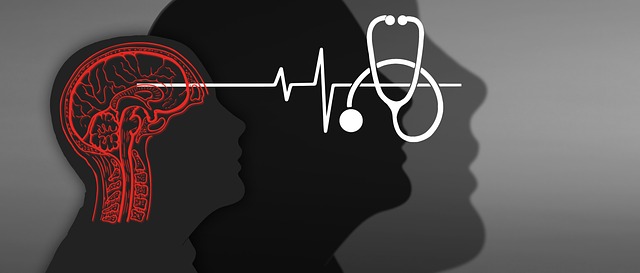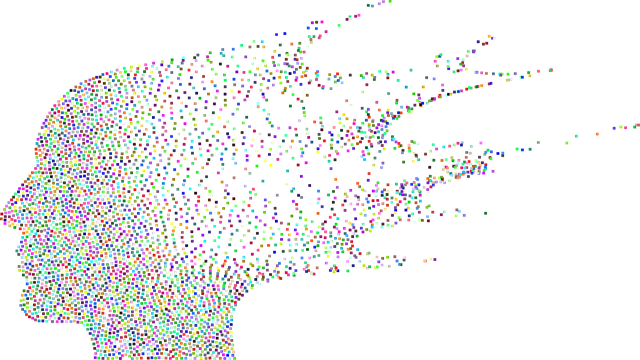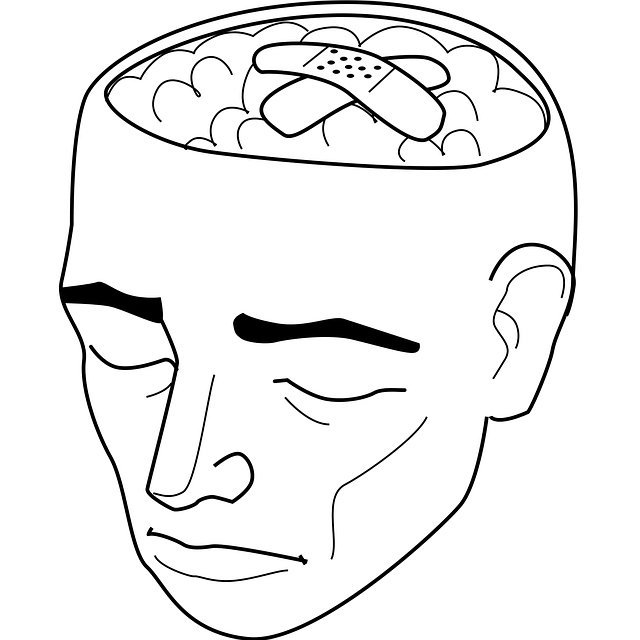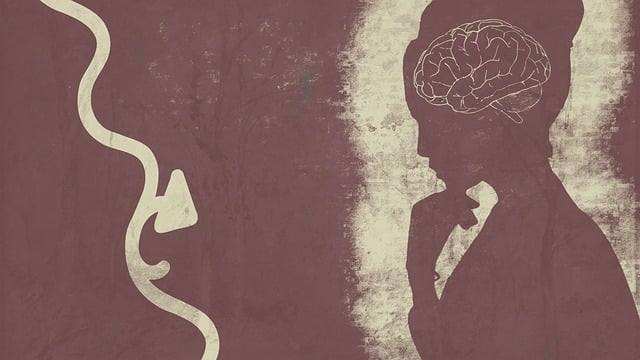Public awareness campaigns enriched by therapeutic approaches like Littleton Biofeedback Therapy play a crucial role in empowering communities through education on issues such as trauma and anxiety. By integrating services that support mental well-being, communities can build resilience and strengthen bonds, fostering environments where individuals support each other in overcoming challenges. Littleton Biofeedback Therapy, utilizing biofeedback technology, empowers individuals to regulate physiological responses through self-care practices, promoting proactive mental wellness and preventing burnout. Successful public awareness campaigns for this therapy leverage social media platforms, create engaging content around relatable themes, and incorporate practical tools to equip young adults with strategies for managing stress and mood. Measuring campaign success involves tracking changes in public knowledge, attitudes, and engagement metrics like website traffic and event attendance, demonstrating positive behavioral influences.
Public awareness campaigns play a pivotal role in shaping societal understanding and behavior. This article delves into the evolution of these initiatives, highlighting their significance in education and mental health advocacy. We explore unique approaches like Littleton Biofeedback Therapy, offering innovative solutions to pressing issues. Through strategic planning, engaging content, and modern technologies, campaigns can capture attention and drive meaningful change. Additionally, we discuss measurement techniques to assess success, ensuring efforts translate into tangible improvements.
- Understanding Public Awareness: The Role of Education in Society
- Littleton Biofeedback Therapy: A Unique Approach to Mental Health Advocacy
- Crafting Effective Campaign Strategies: Engaging Target Audiences
- Utilizing Modern Technologies for Maximum Impact
- Measuring Success: Evaluating the Effectiveness of Public Awareness Campaigns
Understanding Public Awareness: The Role of Education in Society

Public awareness campaigns are instrumental in educating communities about various issues, fostering understanding, and encouraging positive change. At their core, these initiatives aim to empower individuals with knowledge, enabling them to make informed decisions and contribute to societal progress. In this context, education serves as a powerful tool for social transformation, especially when coupled with innovative approaches like Littleton Biofeedback Therapy.
By integrating therapeutic techniques such as biofeedback into awareness campaigns, communities can address pressing matters like trauma, anxiety, and the development of coping skills. Services like Trauma Support and Anxiety Relief programs, often coupled with education, offer a holistic approach to well-being. This not only enhances individual resilience but also contributes to building stronger, more resilient communities where people support each other in overcoming challenges, fostering a sense of unity and shared purpose.
Littleton Biofeedback Therapy: A Unique Approach to Mental Health Advocacy

In the realm of mental health advocacy, Littleton Biofeedback Therapy stands out as a unique and innovative approach. This therapy leverages biofeedback technology to empower individuals in their quest for well-being. By focusing on burnout prevention and depression prevention, it offers a holistic method that goes beyond traditional talk therapy. Through self-care practices, patients learn to regulate their physiological responses, thereby gaining greater control over their mental health.
The beauty of Littleton Biofeedback Therapy lies in its ability to provide personalized care tailored to each individual’s needs. By teaching mindfulness and relaxation techniques, it fosters resilience against the stresses of daily life. This proactive approach not only helps prevent burnout but also promotes overall mental wellness. Incorporating biofeedback into self-care routines can be a game-changer for folks struggling with anxiety, stress, or depression, enabling them to take charge of their emotional well-being.
Crafting Effective Campaign Strategies: Engaging Target Audiences

Crafting effective public awareness campaign strategies requires a deep understanding of the target audience. For instance, a Littleton Biofeedback Therapy initiative targeting young adults might focus on engaging them through social media platforms they frequently use, like Instagram and TikTok. By creating content that resonates with their interests and challenges, such as stress management techniques and mental health awareness, the campaign can capture their attention and foster genuine interest.
Using innovative approaches like interactive videos, relatable influencers, or even gaming elements can significantly enhance engagement. Additionally, incorporating conflict resolution techniques and mood management strategies into the narrative can empower young adults to take control of their well-being. This tailored strategy ensures that the message not only reaches but also resonates with the intended audience, fostering a deeper connection and promoting positive behavioral changes.
Utilizing Modern Technologies for Maximum Impact

In today’s digital era, modern technologies offer unprecedented opportunities for enhancing public awareness campaigns. Platforms like social media, with their vast reach and interactivity, can amplify messages and engage diverse audiences, especially when coupled with innovative tools such as Littleton Biofeedback Therapy. This therapy facilitates Self-Awareness Exercises by teaching individuals to manage stress and anxiety through real-time biofeedback data, making it a valuable asset for promoting Mental Wellness Coaching Programs Development.
By integrating these technologies, awareness campaigns can move beyond traditional methods and create more impactful, personalized experiences. For instance, social media campaigns with interactive elements that encourage users to share their positive thinking and personal stories related to mental health can generate a sense of community and foster open dialogue. This digital approach not only broadens the scope of awareness but also ensures that messages resonate with people on a deeper level.
Measuring Success: Evaluating the Effectiveness of Public Awareness Campaigns

Measuring success is an integral part of any public awareness campaign, especially when addressing sensitive topics like mental health. For campaigns focused on promoting Littleton Biofeedback Therapy or similar wellness practices, evaluating effectiveness requires a multi-faceted approach. One way to gauge impact is by tracking changes in public knowledge and attitudes towards the targeted issue. This can be done through pre-and post-campaign surveys, focusing on questions that measure understanding of the topic, perceived importance, and willingness to adopt recommended behaviors.
Furthermore, assessing the reach and engagement of these campaigns is crucial. Metrics such as website traffic, social media interactions, and attendance at community events can indicate public interest and participation. For instance, a well-designed Mental Health Education Program might see increased enrollment in local workshops or a surge in downloads of burnout prevention strategies for healthcare providers, demonstrating the campaign’s ability to inspire action and positively influence behavior.
Public awareness campaigns, when strategically designed and executed, such as the innovative practices offered by Littleton Biofeedback Therapy, can significantly impact societal well-being. By combining education with modern technologies, these campaigns empower individuals to take charge of their mental health, fostering a more informed and engaged community. Effective strategies that cater to diverse audiences ensure that vital messages reach those who need them most, ultimately enhancing the overall health and resilience of society.














